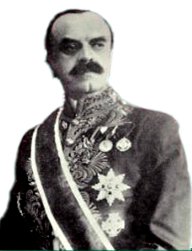You can help expand this article with text translated from the corresponding article in German. (August 2024)Click [show] for important translation instructions.
|
This article relies largely or entirely on a single source .(August 2024) |

Ludwig von Flotow | |
|---|---|
| Foreign Minister of Austria-Hungary | |
| In office 3 November 1918 –11 November 1918 | |
| Monarch | Charles I |
| Preceded by | Gyula Andrássy the Younger |
| Succeeded by | none as Foreign Minister of Austria-Hungary (position liquidated), Victor Adler (as Foreign Minister of Austria), Mihály Károlyi (as Foreign Minister of Hungary) |
| Personal details | |
| Born | 17 November 1867 |
| Died | 6 April 1948 (aged 80) |
| Party | Liberal Party,Constitution Party,KNEP,Christian National Party |
| Profession | Politician |
Ludwig von Flotow,after 1919 known simply as Ludwig Flotow (17 November 1867 in Vienna - 6 April 1948 in Gmunden) was an Austro-Hungarian statesman. He was the last Chairman of the Ministers' Council for Common Affairs,having served from 2 November 1918 until 11 November 1918. [1] He resigned his office only in 1920,being loyal to Emperor Charles I of Austria.